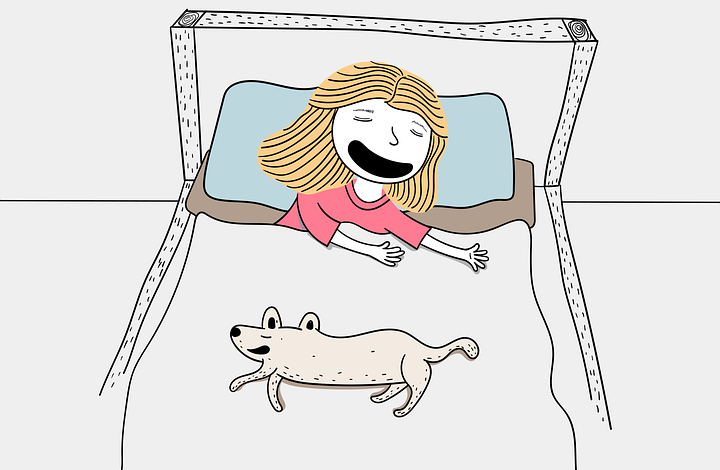
Just like the dog in this pic , my dog 🐶 loves sleeping – my spirit animal indeed ! A good night’s sleep can be a blissful escape from reality…. And I never fight an urge to nap either, I am a mere slave to my biorhythms 😉
Many body processes follow circadian (cyclical) biorhythms – this 2016 paper has easy graphs depicting these and explains why most myocardial infarctions (heart attacks) tend to occur between 6 PM & noon . The stress hormones start going up in anticipation of waking up from 4-5 AM onwards and manifest in BP elevations after 6 AM usually. So if patients take their morning anti-hypertensive medications (blood pressure meds) between 8-10 AM , the damage & cardiovascular stress of higher blood pressure has already occurred before they can act . Not to mention the effect of medications taken the previous day starts to wane even before the 24 hours are up.
A large study published in 2020 slipped under the radar for many perhaps due to COVID putting everything else in the backseat – except maybe masks & toilet paper 😉. Almost 19,000 patients were followed for 6.3 years in a controlled prospective clinical trial, they found improved ambulatory BP control in patients taking at least one antihypertensive at bedtime and an almost 50% reduction in cardiovascular events like MI, stroke, CHF. These impressive results are slowly being picked up. Even before this study, ACE inhibitors some years ago were shown to work slight better when taken at bedtime.
There you have it, This is the premise of ‘Chronotherapy’ , i.e. timing administration of medications based on when they would be most effective. This maybe a good conversation to have with your patients who take all of their BP meds in the morning.
⚠❗ One caveat with converting all BP meds to bedtime could be the risk of orthostatic hypotension and risk of passing out in people who tend to wake up for bathroom breaks at night, since while sleeping our blood pressure naturally drops. The same study mentioned earlier reported significant drops in sleeping BP for bedtime dosers compared to morning dosers. Thus, if on multiple BP meds, a more prudent approach might be to switch one or two meds to bedtime instead of all. The other caveat – I don’t know how this might change for night shifter workers !
Don’t miss these fun posts! Subscribe via email 📩 | |
